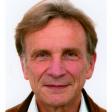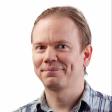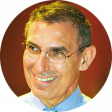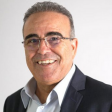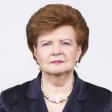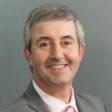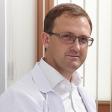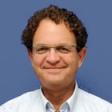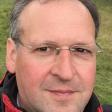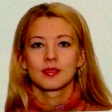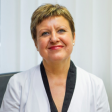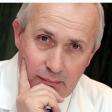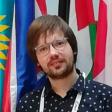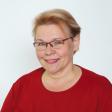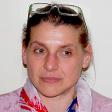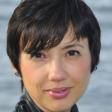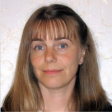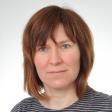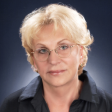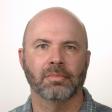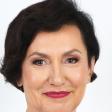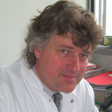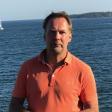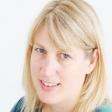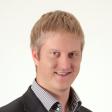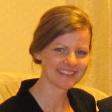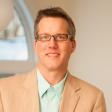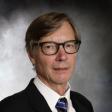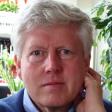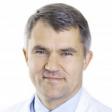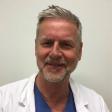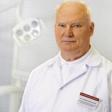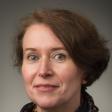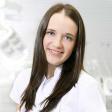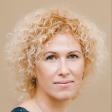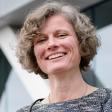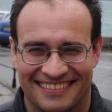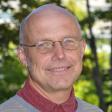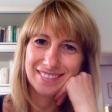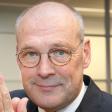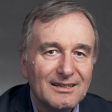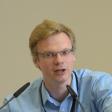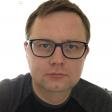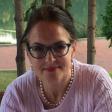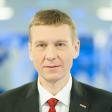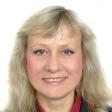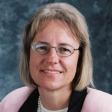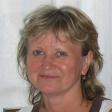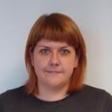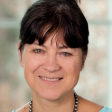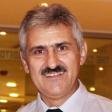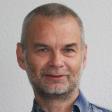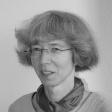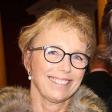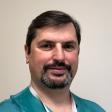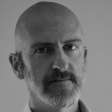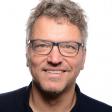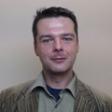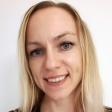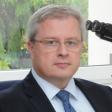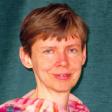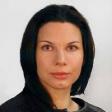Meet the Speakers
Opening Plenary Session, 1 April
- Agenda
9:00–9:30
Opening Speeches
Prof. Dr. habil. med. Aigars Pētersons, RSU rector
Ilze Viņķele, Minister for Health, Ministry of Health
Anita Muižniece, Parliamentary secretary, Ministry of Education and Science
Prof. Hein Heidbuchel, President of the European Heart Rhythm Association
9:30–10:00
Keynote
Challenges faced by universities and science in the development of contemporary society
Dr Vaira Vīķe-Freiberga, President of the Club de Madrid and former President of Latvia (1999–2007)10:00–10:30
Keynote
ABIVAX Therapeutics: Targeting RNA biogenesis opens a new era of therapeutic intervention in viral and inflammatory diseases
Prof. Jamal Tazi, Ph. D. Director, CNRS and Scientific Director of the Abivax – CNRS Collaborative Laboratory. Professor of functional genomics at the University of Montpellier, Senior Member at the University Institute of France and deputy director of the health center biology «Rabelais» responsible for education and training10:30–11:00
COFFEE BREAK
11:00–11:30
Prof. Yehuda Shoenfeld, MD, FRCP, MaACR (Israel)
The mosaic of autoimmunity; The role of genetics and environmental factors and especially microbiome
11:30–12:00
Prof. Dr. Med. Peter Goretzki (Germany)
Thyroid carcinoma – from rabbits to lions! What do we need for treatment and prognostic evaluation in 2019
12:00–12:30
Prof. Maija Dambrova (Latvia)
Academia and pharmaceutical industry collaboration: advancing drug discovery
12:30–13:00
Prof. Simo Jaakko Saarakkala, Ph.D. (Finland)
Using Artificial Intelligence in Diagnostic Imaging
Cardiovascular Health, 1 & 2 April
Agenda
1 April
MODERATORS: Pēteris Stradiņš (Latvia), Kārlis Trušinskis (Latvia), Andrejs Ērglis (Latvia)
14:00–14:30
Pēteris Stradiņš (Latvia)
Heart valve surgery in the 21st century: current strategies and future perspectives
14:30–14:45
Evija Knoka (Latvia)
Circulating MicroRNAs as Potential Biomarkers for Plaque Vulnerability
14:45–15:00
Aija Mača (Latvia)
The long term outcomes of the patient with Acute coronary syndrome with ST elevations depending on revascularization methods
15:00–15:15
Ivars Brečs (Latvia)
Tissue biomechanical changes in the case of a dilated human ascending aorta
15:15–15:30
Mārtiņš Kalējs (Latvia)
Coronary revascularisation – how do you improve the gold standard?
15:30–16:00
Andrejs Ērglis (Latvia)
Team Science: Future of Medicine, Cardiology as an Example
16:00–16:15
Laima Caunīte (Latvia)
Association Between Myocardial Strain and Severity of Coronary Artery Disease
16:15–16:30
Arnis Laduss, Indulis Kumsārs (Latvia)
Intrahospital and long-term outcomes after true bifurcation stenting
16:30–17:30
POSTER SESSION
2 April
Arrhythmias and Sudden Cardiac Death (Chronic Heart Failure)
MODERATORS: Hein Heidbuchel (Belgium), Oskars Kalējs (Latvia), Aivars Lejnieks (Latvia), Samuel Viskin (Israel)
9:00–9:30
Samuel Viskin (Israel)
Diagnosis of long and short QT syndromes
9:30–10:00
Hein Heidbuchel (Belgium)
A general framework to manage athletes with arrhythmias
10:00–10:15
Aldis Strēlnieks (Latvia)
Recurrent arrhythmias after successful electrical cardioversion of atrial fibrillation in patient with hypertension and diabetes
10:15–10:30
Žanna Pičkure (Latvia)
Acute myocardial infarction. How to look at the right ventricle
10:30–10:45
Kristīne Jubele (Latvia)
Case report – Brugada syndrome patient
10:45–11:00
Nikolajs Ņesterovičs (Latvia)
Lead-related infective endocarditis in patients after cardiac electrical device implantation in Pauls Stradiņš Clinical University Hospital
11:00–11:30
COFFEE BREAK / POSTER SESSION
Cardiomyopathies, Rare Cardiac diseases and Sports Cardiology
MODERATORS: Ainārs Rudzītis (Latvia), Sandra Rozenštoka (Latvia), Ingūna Lubaua (Latvia)
11:30–11:45
Pauls Sīlis (Latvia)
Prevalence of hypertension in children after repair of coarctation of the aorta
11:45–12:00
Ainārs Rudzītis (Latvia)
Rare causes of cardiac hypertrophy
12:00–12:15
Baiba Barone (Latvia)
Multimodality approach in diagnosis of cardiac storage diseases
12:15–12:30
Sandra Rozenštoka (Latvia)
What does it mean – Athletes heart?
12:30–12:40
Agnese Strenge (Latvia)
Eizenmenger syndrome – problems and pitfalls in management
12:40–12:50
Vija Siliņa (Latvia)
Effects of SMS text messaging on chemerin and omentin levels in clinically healthy overweight and obese individuals: results from a RCT
12:50–13:00
Kristaps Šablinskis (Latvia)
Tumor of Pulmonary artery
13:00–13:30
COFFEE BREAK
13:30–14:30
POSTER SESSION
Various Topicalities of Cardiology
MODERATORS: Kristīne Jubele (Latvia), Oskars Kalējs (Latvia), Viesturs Lāriņš (Latvia), Samuel Viskin (Israel)
14:30–14:45
Irina Pupkeviča (Latvia)
Predictors of effective electrical cardioversion of atrial fibrillation
14:45–15:00
Roberts Leibuss (Latvia)
Neurological Outcomes and Neuromonitoring In Cardiac Surgery
15:00–15:15
Ketija Apsīte (Latvia)
Oral anticoagulant influence on the health-related quality of life for high-risk atrial fibrillation patients: 6-month and 12-month follow-up
15:15–15:30
Luīze Bidiņa (Latvia)
Arrhythmogenic Right ventricular cardiomyopathy in Latvia
15:30–15:45
Irina Rudaka (Latvia)
Clinical exome sequencing in lone atrial fibrillation
15:45–16:00
Viesturs Lāriņš, Jānis Lācis (Latvia)
Can the type of physical load lead athlete’s heart hypertrophy to involution?
16:00–16:20
Yuri Shubik (Russia)
Rhythm and rate control in AF-2018
16:20–16:30
Jānis Guslens (Latvia)
Early detection of cardiac arrhythmias with ILR and telemonitoring
16:30–17:00
POSTER SESSION
Oncology and Haematology, 1 & 2 April
- Agenda
1 April, Hippocrates lecture hall
MODERATORS: Jānis Gardovskis, Sandra Lejniece, Edvīns Miklaševičs (Latvia)
14:00–14:30
Elona Jouzaitytė (Lithuania)
Cell responses to ionizing radiation: current researh at Lithuania university of Health Science and future perspectives with “inspire” project
14:30–14:50
Rūta Dambrauskienė, Rolandas Gerbutavičius (Lithuania)
Biomarkers predicting thrombosis in patients with chronic myeloproliferative diseases
14:50–15:10
Alla Rivkina (Latvia)
Prognostic indicators in chronic lymphocytic leukemia
15:10–15:30
Daiga Auziņa (Latvia)
Expression of dickkopf-related protein 1 and evidance of osteolysis in multiple myeloma patients
15:30–15:50
Elena Kashuba (Ukraine)
STAT5 transcription factor is retained in cytoplasm in B-cells of patients with chronic lymphocytic leukemia
15:50–16:10
Domas Vaitiekus, Rolandas Gerbutavičius (Lithuania)
Results of autologous hematopoetic stem cell transplantation in Kaunas – international telemedicine project
16:10–16:30
Ilze Trociukas (Latvia)
Autologous hematopoetic stem cel transplantation in plasma cell disorders: 12 years experience in Haematology centre in Latvia
16:30–17:30
POSTER SESSION
2 April, Lecture hall #1
Part I
MODERATORS: Jānis Gardovskis, Edvīns Miklaševičs (Latvia)
9:10–9:45
Jan Lubinski (Poland)
Milestone improvements on prevention and treatment of cancers based on knowledge of patients genetic changes
9:45–10:00
Arvīds Irmejs (Latvia)
Breast cancer – change of paradigm
10:00–10:15
Jeļena Maksimenko (Latvia)
Personalized multidisciplinary management of patient with triple-negative breast cancer
10:15–10:30
Gunta Purkalne (Latvia)
Targeted therapy update
10:30–11:00
Discussion
11:00–11:30
COFFEE BREAK / POSTER SESSION
Part II
MODERATORS: Arvīds Irmejs, Gunta Purkalne (Latvia)
11:30–11:45
Maija Radziņa (Latvia)
Multparametric magnetic resonance imaging and 68-Gallium-PSMA positron emission tomography in patients with biochemical recurrent prostate cancer, single centre study
11:45–12:00
Kļims Ļeoņenko (Latvia)
The quality of transuretral resection of bladder tumour in first time diagnosed bladder cancer
12:00–12:15
Zanda Daneberga (Latvia)
FAP cases in Latvia, confirmed by molecular genetic testing
12:15–12:30
Inese Čakstiņa (Latvia)
Approaches for patient-derived breast cancer cell cultivation (2D and 3D cultures)
12:30–13:00
Discussion
13:00–14:00
COFFEE BREAK / POSTER SESSION
Part III
MODERATORS: Andris Gardovskis, Zanda Daneberga (Latvia)
14:30–14:45
Valdis Pirsko (Latvia)
The impact of hypoxia on chemoresistance in breast cancer cell lines
14:45–15:00
Juris Plonis (Latvia)
Epidemiology and genetic features of prostate cancer
15:00–15:15
Rita Ničiporuka (Latvia)
Metastatic thyroid cancer
15:15–15:30
Olga Plisko (Latvia)
Association between human leukocyte antigen genes and cervical precancerous lesions
15:30–15:45
Anna Ivanova (Latvia)
Combined forms of basal cell carcinoma in the head and neck region
15:45–16:00
Kalvis Pastars (Latvia)
Impact factor on 2-years and 5-years survival rate in patients operated with oral cancer in advanced state
16:00–16:15
Lars O. Baumbusch (Norway)
Childhood cancers – from biobanking to sequencing projects
16:15–16:30
Discussion
16:30–17:00
POSTER SESSION
Infectious Diseases, 1 & 2 April
Agenda
1 April, Lecture hall #2
MODERATORS: Modra Murovska, Juta Kroiča (Latvia)
14:00–14:30
Ludmila Vīksna (Latvia)
Infectology – an objective reality in the 21st century
14:30–14:45
Nataļja Kurjāne, Violeta Zubkova, Inta Jaunalksne, Tatjana Prokofjeva, Natālija Gerula, Petra Kriķe, Inese Mihailova, Viktorija Ķēniņa (Latvia)
Common Variable Immunodeficiency (CVID) in Latvia’s Population
14:45–15:00
Oļegs Šuba, Aivars Lejnieks, Viesturs Liguts (Latvia)
The role of oxidative stress in patients with community-acquired pneumonia and sepsis, and it’s impact on the course of the disease
15:00–15:15
Guna Laganovska, Anete Kursīte, Kristiāna Čačka, Elizabete Salmane-Šapale (Latvia)
Infectious Keratitis – frequent indication for penetrating keratoplasty
15:15–15:30
Inese Čakstiņa (Latvia)
A review of current nanoparticle-based approaches for combating multi-drug resistant bacteria
15:30–15:45
Aigars Reinis, Mohit Kakar, Juta Kroiča, Arnis Eņģelis, Aigars Pētersons, Ingus Skadiņš, Dagnija Rostoka, Reinis Rugājs (Latvia)
Early diagnostic biomarkers for diagnosis of acute bacterial infections
15:45–16:00
Ingus Skadiņš, Juta Kroiča, Ilze Šalma (Latvia)
Biocompatibility of biomaterials in vivo and antibacterial efficiency in vitro
16:00–16:15
Aivars Bērziņš (Latvia)
Current trends in foodborne listeriosis
16:15–16:30
Aleksejs Derovs (Latvia)
Targeting microbiota in 21st century: What do we know about it?
16:30–17:30
POSTER SESSION
2 April, Lecture hall #2
MODERATORS: Modra Murovska, Juta Kroiča (Latvia)
9:00–9:30
Kristel Van Laethem (Belgium)
Earlier initiation of antiretroviral treatment coincides with an initial control of the HIV-1 sub-subtype F1 outbreak among men having sex with men in Flanders, Belgium
9:30–10:00
Roberta Rizzo (Italy)
Human herpesviruses – biology, epidemiology and disease association
10:00–10:15
Monta Madelāne, Ģirts Šķenders, Dace Rudzīte, Andrejs Ivanovs, Ludmila Vīksna (Latvia)
Microbial translocation markers in HIV and HCV patients
10:15–10:30
Maksims Čistjakovs, Alīna Sultanova, Olga Jermakova, Lība Sokolovska, Svetlana Čapenko, Baiba Lesiņa-Korne, Modra Murovska, Ieva Ziediņa (Latvia)
Human papillomaviruses in East Europe: issues and tendencies
10:30–10:45
Zaiga Nora-Krūkle, Anda Vilmane, Anna Terentjeva, Normunds Sūna, Silvija Roga, Sandra Skuja, Santa Rasa, Modra Murovska (Latvia)
Parvoviruses and inflammatory neurological disorders
10:45–11:00
Irina Holodņuka, Svetlana Kozireva, Ainārs Leončiks, Elena Kashuba (Latvia, Sweden)
Viruses and Oncology: EBV – an oncogenic virus
11:00–11:30
COFFEE BREAK / POSTER SESSION
11:30–12:00
Simona Doniņa (Latvia)
Do some of viruses may be beneficial?
12:00–12:15
Karlis Rācenis, Juta Kroiča, Laima Mukāne, Aivars Pētersons (Latvia)
Bacteriophage treatment in biofilm associated infections
12:15–12:45
Maria Söderlund-Venermo (Finland)
Clinical impact and epidemiology of emerging human parvoviruses
13:00–14:30
COFFEE BREAK / POSTER SESSION
14:30–15:00
Kristīne Oļeiņika, Hannah Bradford, Scott Crichton, Fiona Dempsey, David A. Isenberg, Claudia Mauri (UK, Latvia)
Understanding how targeting annexin A1 may control inflammation in systemic lupus erythematosus
15:00–15:15
Maria Issagouliantis (Latvia, Sweden, Russia)
Modern state of vaccine development, DNA vaccines
15:15–15:30
Renāte Ranka, Ilva Pole, Inta Jansone, Iveta Ozere, Anda Nodieva, Ģirts Šķenders, Vija Riekstiņa, Inga Norvaiša (Latvia)
Molecular studies of tuberculosis in Latvia
15:30–15:45
Larisa Savrasova, Anita Villeruša, Hedija Čupeca, Ilze Grope, Angelika Krūmiņa, Jeļena Galajeva, Indra Zeltiņa (Latvia)
Invasive pneumococcal disease in Latvia in PVC10 vaccination era, 2012-2017
15:45–16:00
Evija Gūtmane, Zane Anna Litauniece, Līga Mekša, Guntis Karelis (Latvia)
Cognitive impairment in tick-borne encephalitis (TBE) patients regarding Montreal Cognitive Assessment (MoCA) scale
16:00–16:15
Olga Valciņa, Daina Pūle, Artjoms Mališevs, Svetlana Makarova, Lelde Grantiņa-Ieviņa, Aivars Bērziņš, Angelika Krūmiņa (Latvia)
Diversity and factors associated with occurrence of Legionella pneumophila in drinking water supply systems
16:15–16:30
Sniedze Laivacuma, Ludmila Vīksna, Jeļena Eglīte (Latvia)
Liver echinococcosis – how can immunogenetic tests improve diagnosis and management tactic
16:30–17:00
POSTER SESSION
Children's and Women's Health, 2 April
- Agenda
Lecture hall #3
Part I
MODERATORS: Dace Gardovska (Latvia), Matthew Goldsmith (USA), Martin Savage (UK)
9:00–9:40
Matthew Goldsmith (USA)
Improving outcomes in pediatric neurocritical care
9:40–10:15
Martin Savage (UK)
The growth hormone-IGF-1 axis in the diagnosis and treatment of growth disorders
10:15–10:30
Linda Rautiainena, Jana Pavāre, Ilze Grope, Svetlana Ince, Pēteris Tretjakovs, Dace Gardovska (Latvia, Finland)
Inflammatory cytokine levels as possible diagnostic and prognostic aid in hospitalized children with fever and suspected serious bacterial infection
10:30–10:45
Urzula Nora Urbāne, Zane Līkopa, Ieva Kravale, Alla Silova, Dace Gardovska, Jana Pavāre (Latvia)
Assessment of children with febrile illness visiting Emergency Department according to “precautionary level” system
10:45–11:00
Inga Ziemele, Anda Vilmane, Santa Rasa, Man Xu, Klaus Hedman, Maria Söderlund-Venermo, Dace Gardovska, Zaiga Nora-Krukle, Modra Murovska (Latvia, Finland)
Human Bocavirus 1 infection in hospitalized children with lower respiratory tract infection
11:00–11:30
COFFEE BREAK / POSTER SESSION
Part II
MODERATORS: Aigars Pētersons (Latvia), Eugene Minevich (USA), Udo Rolle (Germany)
11:30–12:00
Eugene Minevich (USA)
Implementing Safety and Quality Improvement Into Medical Practice
12:00–12:30
Udo Rolle (Germany)
Newborn Surgery – The way from survival to quality of life – longterm developmental follow up
12:30–12:45
Roberts Gobergs, Dagnija Pētersone, Corsino Rey Galan, Reinis Balmaks (Latvia, Spain)
Prediction of poor outcome in critically ill children using clinical evaluation, scoring systems and biomarkers
12:45–13:00
Astra Zviedre, Arnis Eņģelis, Pēteris Tretjakovs, Vilnis Titāns, Aigars Pētersons (Latvia)
Evaluation of possible diagnosing tool distinguishing acute appendicitis from mesenteric lymphadenitis in children
13:00–14:00
COFFEE BREAK / POSTER SESSION
Part III
MODERATORS: Dace Rezeberga, Gunta Lazdāne (Latvia)
14:00–14:30
Rūta Nadišauskiene (Lithuania)
Efforts to control CS rate: Lithuanian experience
14:30–14:40
Īrisa Zīle, Laura Rācene, Dace Rezeberga (Latvia)
Cesarean Section Rates in Latvia Using Robson Classification System
14:40–14:50
Inese Bļodniece, Dace Rezeberga, Gunta Lazdāne, Santa Markova (Latvia)
Implementation of ICD-10 (ICDPM) perinatal mortality audit tool: analysis of maternal condition at the time of perinatal death
14:50–15:00
Gunita Deksne, Vija Veisa, Dace Rezeberga, Ludmila Vīksna, Angelika Krūmiņa (Latvia)
Serological Evidence of Toxoplasma gondii in the Latvian population with the emphasis on women’s and children’s health
15:00–15:10
Jeļizaveta Murzina, Vija Veisa, Ērika Bitiņa-Barlote, Margarita Božko, Edgars Barlots; Dace Rezeberga, Santa Markova (Latvia)
How has HIV Positive Pregnant Women Care Changed in Riga Maternity Hospital During Past 9 Years
15:10–15:40
Ilvars Siliņš (Sweden)
Prognostic Importance of Complications after Primary or Interval Cytoreductive Surgery in Advanced Stage Ovarian Cancer
15:40–15:50
Linda Gailīte, Zane Dobele, Līva Laiviņa, Zane Vītiņa, Valērija Magomedova, Juris Ērenpreiss, Inga Kempa (Latvia)
Extended genetic testing in patients from infertility clinics using new genotyping method – preliminary results
15:50–16:00
Laura Malakauskienė, Laima Maleckienė, Diana Ramašauskaitė (Lithuania)
Impact of bariatric surgery-to-conception interval on maternal outcomes in a national cohort of women
16:00–16:10
Ieva Briedīte, Marta Ūdre, Anna Pentjugova (Latvia)
Self-Assessment of Changes of Sexual Life in Women After Vaginal Delivery
16:10–16:20
Vita Začesta, Laura Rācene, Haralds Plaudis, Dace Rezeberga (Latvia)
External Anal Sphincter Muscle Recovery Detected With Surface EMG After Perineal Tear: A Case Study
16:20–16:30
Diana Cooper (South Africa)
The effects of urban violence and crime on youth access to HIV and sexual and reproductive healthcare in Cape Town, South Africa
16:30–17:00
POSTER SESSION
Dentistry, Orthodontics and Oral and Maxillofacial Surgery, 1 & 2 April
- Agenda
1 April, Institute of Dentistry
Facing the future: Translational research in oral and maxillofacial biology I
MODERATORS: Ilga Urtāne, Egita Senakola (Latvia)
14:00–14:15
Andris Ābeltiņš, Ilga Urtāne, Ilze Akota, Una Soboļeva (Latvia)
Opening speech
14:15–15:00
Jukka Meurman (Finland)
Translational oral health research
15:00–15:30
Egija Zaura (Netherlands)
Towards understanding oral health
15:30–15:50
Ilze Maldupa (Latvia)
Research integration in teaching
15:50–16:10
Anda Slaidiņa (Latvia)
Osteoporosis and edentulous jaws
16:10–16:30
Rita Kundziņa (Norway)
Will Mineral trioxide aggregate replace calcium hydroxide in treating carious exposures in adults?
16:30–16:40
Ilze Maldupa (Latvia), Ilona Viduskalne (Latvia), Jūlija Kalniņa (Latvia), Līga Kroniņa (Latvia), Sergio Andres Uribe Espinoza (Chile), Egita Senakola (Latvia), Anda Brinkmane (Latvia)
Use of toothpastes with optimal fluoride concentration in Latvia
16:30–17:30
POSTER SESSION
2 April, Institute of Dentistry
Facing the future: Translational research in oral and maxillofacial biology II
MODERATORS: Una Soboļeva, Ģirts Šalms (Latvia)
8:30–9:15
Per Vult von Steyern (Sweden)
A paradigm shift for dental ceramics
9:15–9:45
Jānis Ločs (Latvia)
Research of bone tissue substitute materials in Latvia
9:45–10:05
Andrejs Skaģers (Latvia)
Development of biomaterial research in the Institute of Dentistry
10:05–10:25
Ģirts Šalms (Latvia)
Modern technologies for orthognathic surgery
10:25–10:35
Liene Zamure, Laura Neimane, Andrejs Skaģers, Zanda Bokvalde (Latvia)
Implantation related measurements in CBCT – how trustworthy are they?
10:35–10:45
Kārlis Ozoliņš, Una Soboļeva, Aigars Reinis (Latvia)
Antibacterial effect of temporary cements: An in vitro study
10:45–10:55
Viktors Jankovskis, Guntars Selga (Latvia)
Clinical manifestations of the burning mouth syndrome
11:00–11:30
COFFEE BREAK / POSTER SESSION
MODERATORS: Andris Ābeltiņš, Anda Brinkmane (Latvia)
11:30–11:50
Anders Sjögren (Norway)
A paradigm shift for dental ceramics
11:50–12:10
Rasa Skudutyte-Rysstad (Norway)
Research of bone tissue substitute materials in Latvia
12:10–12:40
Eglė Zasčiurinskienė (Lithuania)
Benefits and risks of orthodontic treatment in subjects with periodontal disease
12:40–12:50
Jevgēnija Podčernina (Latvia), Ilga Urtāne (Latvia), Pertti Pirttiniemi (Finland)
Condylar bony changes and signs of temporomandibular joint disorders in Class III orthognathic surgery patients
12:50–13:00
Signe Silineviča, Gundega Jākobsone, Alla Beļaka, Natālija Šilova (Latvia)
Interconnection between facial asymmetry and the occlusal features
13:00–14:00
COFFEE BREAK
13:30–14:30
POSTER SESSION
Facing the future: Translational research in oral and maxillofacial biology III
MODERATORS: Ilze Akota, Gundega Jākobsone (Latvia)
14:30–15:15
Stephen Richmond (UK)
Facial genetics: A brief overview
15:15–16:00
Sarah Lewis (UK)
Using genetics to identify causal risk factors and biological mechanisms for cleft lip and palate
16:00–16:15
Alexei Zhurov (UK)
Applications of the average face in orthodontic and genetic studies
16:15–16:25
Ilze Akota (Latvia), Ieva Bāgante (Latvia), Jan Lenz (Germany), Linas Zaleckas (Lithuania), Marianne Soots (Estonia), Karsten Gundlach (Germany)
Intercenter Study of Different Surgical Techniques in Patients with Complete Unilateral Cleft Lip Alveolus and Palate (UCLAP)
16:25–16:35
Madara Dzudzilo, Ingrīda Čēma, Regīna Kleina, Ivanda Franckeviča, Andris Šmits (Latvia)
Pattern of CD44 antigen expression in mucosal and submucosal structures in case of oral leukoplakia
16:30–17:00
POSTER SESSION
Mental Health and Neuroscience, 1 & 2 April
- Agenda
1 April, Lecture hall #1
Assesment and management of neurocognitive and neurodegenerative disorders
MODERATORS: Andrejs Millers (Latvia), Kristīne Mārtinsone (Latvia), Sara Mondini (Italy)
14:00–14:40
Sara Mondini (Italy)
Cognitive reserve in Healthy ageing
14:40–15:20
Bob Woods (UK)
Interventions to improve quality of life and function in people with dementia
15:20–15:35
Rudīte Terehova (Latvia)
The relationship between quality of life and perceived social support for dementia patients in social care institution
15:35–16:15
Andis Klegeris (Canada)
Modifiable risk factors for Alzheimer’s disease and glia-driven neuroinflammation: what are the links?
16:15–16:30
Julius Juurmaa (Estonia)
Parkinsonism-dystonia syndrome in methcathinone abusers: a journey from the clinic to functional activation networks in the brain
16:30–17:30
POSTER SESSION
2 April, Senate hall
Mental Health in Latvia – from behavioural patterns to clinical care
MODERATORS: Elmārs Rancāns, Māris Taube, Kristīne Mārtinsone (Latvia)
9:00–9:15
Natālija Bērziņa-Novikova (Latvia)
Psychiatric health care quality evaluation from patients’ perspective – what do we know?
9:15–9:30
Jeļena Vrubļevska (Latvia)
Latvian family physicians’ experience and attitude in diagnosing and managing depression
9:30–9:45
Elmārs Rancāns (Latvia)
Changes in diagnostics of depression among Family physicians in Latvia following education course of National Research Programme BIOMEDICINE 2014 – 2017
9:45–10:00
Viktorija Perepjolkina (Latvia)
Theoretical justification of the empirically derived dimensional model of personality pathology operationalised the Latvian Clinical Personality Inventory (LCPI)
10:00–10:15
Inese Paiča (Latvia)
Emotion-regulation skills and depression
10:15–10:30
Liene Bērze (Latvia)
Interventions in early psychosis: from scientific evidence to clinical practise
10:30–10:45
Krista Mieze (Latvia)
Prevalence and sociodemographic characteristics of self-reported mild types of suicidal behaviour in the general population in Latvia
10:45–11:00
Ņikita Bezborodovs (Latvia)
Screening for symptoms of psychological distress in adolescent populations
11:00–11:30
COFFEE BREAK / POSTER SESSION
The Force of Psychotherapy and Psychosomatics in Medicine
MODERATORS: Gunta Ancāne (Latvia), Rutger Jan van der Gaag (Netherlands)
11:30–11:50
Rutger Jan van der Gaag (Netherlands)
Psychosomatics: an expressive style that runs in families
11:50–12:05
Artūrs Utināns (Latvia)
Use of a cognitive reflexive test for determining the predominance of analytical or intuitive thinking for students of RSU
12:05–12:15
Artūrs Ancāns (Latvia)
Comparison of early psychotherapy dropout prevalence between residents and certified physicians in RSU Clinic of Psychosomatic medicine and psychotherapy
12:15–12:25
Lelde Logina (Latvia)
Comparison of frequency and severity levels of feelings depressed and anxious among RSU 1st and 6th year Latvian medical faculty students
12:25–12:35
Velga Sudraba (Latvia)
Stress, its causes and ways to overcome it among students of Medicine and Health Care study programs
12:35–12:50
Gunta Ancāne (Latvia)
Mental health and the quality of doctor-patient relationship
12:50–13:00
Discussion
13:00–14:00
COFFEE BREAK / POSTER SESSION
Neuroscience in clinical practice
MODERATORS: Kārlis Kupčs, Evija Miglāne (Latvia)
14:00–14:30
Gaida Krūmiņa (Latvia)
Current Clinical Research in Neuroradiology at Rīga Stradiņš University
14:30–14:45
Reinis Pitura (Latvia)
The relation between the number of Magnetic Resonance contrast examinations and Hyperintensity in Pulvinar, Globus pallidus, Pons and Nucleus dentatus in pediatric patients
14:45–15:00
Zanda Priede (Latvia)
Progress and challenges in frontotemporal dementia research
15:00–15:15
Jānis Mednieks (Latvia)
Contemporary approach to cognitive assessment in patients with systemic connective tissue disorders
15:15–15:30
Jānis Vētra (Latvia)
The impact of participation in quality improvement initiative and international registry on the acute stroke care
15:30–15:45
Kristaps Jurjāns (Latvia)
Cardioembolic stroke long-term function outcome in Latvian population from 2014-2017
15:45–16:00
Lauma Dobelniece (Latvia)
Hemorrhagic transformation in acute ischemic stroke – demographics, risk factors and comparison with literature data
16:00–16:15
Jasmeet Singh (Latvia)
Pre-frontal cortex stroke impairs cerebral blood flow in comorbidities of obesity and hyperuricemia
16:00–16:15
Artūrs Balodis (Latvia)
Acute stroke long term clinical outcome study – imaging-based selection of patients for mechanical thrombectomy
16:30–17:00
POSTER SESSION
Morphology – Anatomy, Histology, Embryology, Anthropology, 2 April
- Agenda
Theatrum Anatomicum, 9 Kronvalda Blvd
MODERATOR: Māra Pilmane (Latvia)
9:00–9:30
Andrejs Braun (United Kingdom)
Keeping genome in order: the role of the nuclear lamina in somatic mutations and progression of B cell malignancies
9:30–10:00
Janina Tutkuvienė (Lithuania)
Using a multi-omics approach to understand the complexity of metformin action in humans with respect to variability of response to the treatment
10:00–10:30
COFFEE BREAK
10:30–11:00
Andrejs Ivanovs (United Kingdom)
Embryonic Development of Haematopoietic Stem Cells in Human and Other Vertebrates: Lessons Learned from Animal Models and Xenotransplantations
11:00–11:20
Zane Vitenberga, Aurika Babjoniševa, Māra Pilmane (Latvia)
An insight into morphopathological findings of COPD: chronic inflammation, remodeling and antimicrobial defence
11:20–11:40
Anna Junga, Olafs Volrāts, Zane Ābola, Māra Pilmane (Latvia)
The significance of growth factors, degenerating enzymes, inflammatory and antimicrobial factors in the morpho-pathogenesis of intraabdominal adhesions in infants
11:40–12:00
Tatjana Zaķe, Sandra Skuja, Ieva Kalere, Ilze Konrāde, Valērija Groma (Latvia)
Role of immune system cells and impairment of the thyroid follicle integrity in the initiation of thyroid autoimmunity and tissue damage assessed by morphological methods
12:00–13:00
BREAK & TRANSFER TO RSU MAIN BUILDING
Pharmacy & Pharmacology, 3 April
Agenda
Lecture hall #2
MODERATORS: Baiba Mauriņa, Konstantīns Logviss (Latvia)
9:10–9:35
Zdeňka Šklubalová (Czech Republic)
Fractal aspects of pharmaceutical powders’ flow
9:35–9:50
Barbora Vraníková (Czech Republic)
Preformulation studies of liquisolid systems: optimization of carrier/coating material ratio
9:50–10:05
Juris Bundulis (Latvia)
Challenges in the development of the pharmaceutical industry
10:05–10:30
Nijolė Savickienė (Lithuania)
Assessment of children with febrile illness visiting Emergency Department according to “precautionary level” system
10:30–10:45
Inga Sīle, Edita Romāne, Sanita Reinsone, Dace Tirzīte, Maija Dambrova (Latvia)
The use of ethnomedicinal plants in the Latvian-populated territory
10:45–11:00
Agnese Brangule, Pēteris Tretjakovs (Latvia)
Use of innovative spectroscopy methods and chemometrics for rapid authentication of herbals
11:00–11:30
COFFEE BREAK / POSTER SESSION
MODERATORS: Dace Bandere (Latvia), Ingrid Sketris (Canada)
11:30–11:55
Ingrid Sketris (Canada)
Improving Prescribing and Medicines Use: Approaches from Nova Scotia, Canada related to Antimicrobials
11:55–12:10
Aleksandra Aitullina, Angelika Krūmiņa, Šimons Svirskis, Santa Purviņa (Latvia)
Incidence of colistin induced acute kidney injury in patients with different renal functional states
12:10–12:25
Aurima Stankūnienė, Gintarė Macionyte, Jurga Bernatonienė (Lithuania)
Conflict management skills among Lithuanian pharmacists
12:25–12:40
Kristine Kārkliņa, Inga Urtāne, Aivars Lejnieks (Latvia)
Analysis of factors affecting statin therapy undergoing planned percutaneous coronary intervention
12:40–12:55
Agnese Prīliņa, Aleksandra Aitullina, Larisa Umnova (Latvia)
Anticoagulant use patterns in patients with pulmonary embolism in Latvian hospital
12:55–13:10
Irēna Mirzajanova, Juris Pokrotnieks, Santa Purviņa (Latvia)
Therapy related adverse drug reactions in patients with inflammatory bowel diseases (IBD)
13:10–13:25
Lāsma Ķite, Inga Urtāne, Pāvels Sudmalis (Latvia)
Proportion change of approved and off label used oncological medicinal products during clinical studies
13:25–13:40
Reinis Vilšķērsts, Melita Vidēja, Ludmila Jackeviča, Daina Zicāne, Andis Melderis, Rūdolfs Beļaunieks, Maija Dambrova, Māris Turks (Latvia)
Search for novel treatment for rare cancers
13:40–14:00
Discussion
14:00–15:00
COFFEE BREAK / POSTER SESSION
Rare Clinical Cases, 3 April
- Agenda
Great Hall
MODERATORS: Andris Skride, Ainārs Rudzītis, Aivars Lejnieks (Latvia)
9:00–9:20
Andris Skride (Latvia)
First lung transplantation for Latvian patient
9:20–9:40
Nora Aleksīna (Latvia)
Primary tumour detection during surgical metastectomy
9:40–10:00
Ieva Tonne (Latvia)
Black, white ... and sometimes gray: Familial hypobetalipoproteinemia
10:00–10:20
Mārtiņš Purenkovs (Latvia)
Chronic hypersensitive pneumonitis
10:20–10:40
Inita Buliņa (Latvia)
CNS manifestation as Hemophagocytic Lymphohistiocytosis
10:40–11:00
Aija Mača (Latvia)
Clarkson's disease
11:00–11:30
COFFEE BREAK / POSTER SESSION
11:30–11:50
Valdis Ģībietis (Latvia)
Tuberous Sclerosis
11:50–12:10
Rūta Ereminienė (Lithuania)
Primary cardiac sarcoma
12:10–12:30
Laura Ozoliņa (Latvia)
Case of hereditary transthyretin – related amyloidosis
12:30–12:50
Daiga Auziņa (Latvia)
Simultaneously diagnosed primary AL amyloidosis and multiple myeloma
12:50–13:10
Zane Ābola (Latvia)
Rare case from Children's hospital
13:10–13:30
Aleksejs Derovs (Latvia)
Crohn’s disease: One Disease, Multiple Faces, Unprognosed Consequences
13:10–13:30
Irene Lang (Austria)
Modern Management of CTEPH
14:00–15:00
COFFEE BREAK / POSTER SESSION
Traumatology and Orthopaedics, 3 April
- Agenda
Lecture hall #3
SESSION 1
MODERATORS: Andris Jumtiņš (Latvia), Alexander Lerner (Israel)
9:00–9:40
Alexander Lerner
Damage Control Orthopaedics Principles in Polytrauma Patients
9:40–9:50
Andris Jumtiņš, Ruta Jakušonoka, Andris Vikmanis
Patient Safe Education in Orthopaedics
9:50–10:00
Modris Ciems, Rota Vēciņa, Uģis Zariņš, Marika Ziediņa
Postgraduate (residency) training of orthopaedic surgeons in the Hospital of Traumatology and Orthopaedics in cooperation with universities
10:00–10:10
Igors Kolosovs, Rūdolfs Preiss
Challenges in orthopaedics and trauma in regional hospital
10:10–10:20
Toms Arcimovičs, Ruta Jakušonoka, Andris Jumtiņš, Gunita Vinčela, Zane Pavāre, Alexander Lerner
Medium-term outcome of patients with surgically treated tibiofibular syndesmosis injury
10:20–10:30
Aleksejs Repņikovs, Kalvis Briuks, Rolands Gibners, Edgars Svolaks, Oļegs Suhorukovs, Andris Pūce
The experience of minimally invasive spine surgery in the Hospital of Traumatology and Orthopaedics
10:30–10:40
Andris Vikmanis, Andris Jumtiņš, Ruta Jakušonoka, Jevgeņijs Movčans
The medium-term outcomes of the polytrauma patients with Pelvic Ring and Acetabular fractures treated by the the modified Stoppa or combined approach
10:40–10:50
Uldis Krustiņš
Arthroscopic treatment and bone grafting of scaphoid nonunions
10:50–11:00
Inese Breide
Extended flexor carpi radialis approach: treatment of complex distal radius fractures
11:00–11:30
COFFEE BREAK / POSTER SESSION
SESSION 2
MODERATORS: Pēteris Studers, Silvestris Zēbolds (Latvia)
11:30–11:40
Pēteris Studers, Andris Džeriņš, Matīss Zolmanis, Una Bladiko
Revision Total Hip Arthroplasty
11:40–11:50
Silvestris Zēbolds, Andris Jumtiņš, Kristaps Knohenfelds
The analysis of revision operations after total hip replacement in dysplastic hip patients
11:50–12:00
Agnese Studere, Daina Šmite
Chronic pain syndrome manifestation before and after total hip arthroplasty for patients with primary hip osteoarthritis
12:00–12:10
Karimov Murod, Sarvar Madrakhimov
The effectiveness of a multidisciplinary approach in total knee replacement
12:10–12:20
Aigars Vugulis
The choice of implants in a shoulder replacement surgery depending on the rotator muscle function
12:20–12:30
Anda Kadiša
Correction of immunosuppressive therapy in rheumatologic patients during the perioperative period
12:30–12:40
Artūrs Bogdanovs, Aleksejs Miščuks, Iveta Golubovska
Fascia iliaca block versus local infiltration analgesia for postoperative pain control after hip replacement surgery
12:40–12:50
Dzintars Ozols, Aigars Pētersons
Long term evaluation of the functional and esthetical outcomes for the new method of the toe-to hand transfer for full-length thumb reconstruction in congenital thumb’s hypoplasia
12:50–13:00
Mārtiņš Malzubris, Luize Raga, Igors Terjajevs
Reconstruction of Osteomyelitis defects
13:00–13:10
Lauris Repša
Orthopaedic oncology – challenge for orthopaedic surgeon
13:10–13:20
Viesturs Drunks
Patient experience after receiving lower extremity amputation due to diabetes and/or peripheral artery disease
13:20–13:30
Agate Leimane, Gundars Rusovs, Aleksejs Kataševs, Aivars Vētra, Aleksandrs Okss
Deformation in elastic panels of smart garment when imitating the Self-Corrective movements of Patients with Idiopathic Scoliosis
13:30–13:40
Ēriks Ozols
Challenges in arthroscopic knee surgery – Medial meniscus posterior root tear
13:40–13:50
Guntis Raipalis, Kārlis Lācis, Tīna Krūmiņa
Using of conservative therapies to prevent the formation of hypertrophic scars after thermal burns
13:50–14:00
Jānis Upenieks, Uldis Bergmanis, Agnese Rekēviča
Options for lower limb length discrepancy correction in children
14:00–15:00
POSTER SESSION
University Teaching and Learning Thematic Conference "Students as Researchers", 3 April
- Agenda
Senate Hall
KEYNOTE SESSION
MODERATORS: Tatjana Koķe, Agrita Kiopa (Latvia)
9:00–9:25
Marjoke Vervoorn (Netherlands)
Virtual reality as innovation in healthcare education
9:25–9:50
Jochen Gläser, Grit Laudel (Germany)
Researchers‘ Careers and Inclusion in Scientific Communities
9:50–10:15
Andis Klegeris (Canada)
Mixed-mode instruction using flipped classroom and active learning techniques leads to improved generic problem-solving skills of undergraduate students
10:15–11:00
Discussion: Science workforce
11:00–11:30
COFFEE BREAK / POSTER SESSION
ORAL PRESENATION SESSION
MODERATOR: Raimonds Strods (Latvia)
11:35–11:50
Kristīne Šneidere, Kristīne Mārtinsone, Tatjana Koķe (Latvia)
Reflection on research integration in study process: case of psychology branch in Rīga Stradiņš University
11:50–12:05
Inese Čakstiņa (Latvia)
Implementation of research experience in the study courses at Rīga Stradiņš University
12:05–12:20
Dzintra Kažoka, Māra Pilmane (Latvia)
3D printed anatomical models – new visualization platform for teaching and education in basic study course
12:20–12:35
Miervaldis Karulis, Ināra Ābelīte, Vita Vīksne, Aija Zilvestre, Ņina Zazerska, Ieva Fībiga (Latvia)
Exploring Satisfaction Attributes of E-learning among Students of Medical Terminology Study Courses
12:35–12:50
Irēna Upeniece, Voldemārs Arnis, Anna Āboliņa (Latvia)
Most typical way of learning for students
12:50–13:05
Elita Poplavska, Nora Jansone-Ratinika, Lāsma Medjānova, Rudīte Koka (Latvia)
Teaching approach and methods for development of the consultation competency in pharmacy studies
PECHA KUCHA SESSION
13:10–13:20
Inese Stars (Latvia)
When a teacher is a researcher at the same time – what types of benefits are there for students?
13:20–13:30
Uldis Vēgners (Latvia)
Making Sense of Things Together: Application of Phenomenology in University Teaching
13:30–13:40
Sanita Litiņa (Latvia)
DeDiWe Case Study
13:40–13:50
Ilva Skulte (Latvia)
Changing Concepts of Teaching and Literacy in the Age of New Media. Practice and Research: MIL&LAB project at RSU
13:50–14:00
Mihails Haļitovs, Agnese Brangule (Latvia)
Using Moodle as formative and summative assessment tool in Medical Chemistry course: a case study
14:00–15:00
COFFEE BREAK / POSTER SESSION
3rd Baltic Sea Symposium on Simulation & Virtual Reality for Health Care Education and Patient Safety, 2 April
- Agenda
RSU Medical Education Technology Centre
9:00–9:15
Opening speeches
Prof. Guntis Bahs, Vice-Rector for Health Studies, Rīga Stradiņš University
Prof. Jürgen Lorenz, Hamburg University of Applied Sciences, Faculty of Life Science, Department of Biomedical Engineering
Simulation-based education in Baltic countries
MODERATORS: Jürgen Lorenz (Germany), Oļegs Sabeļņikovs (Latvia)
9:15–10:00
Jürgen Lorenz (Germany)
The role of simulation-based medicine in quality and safety of medical care
Simulation-based medical education (SBME) has made significant progress within the last decade. The series of Baltic sea symposia on simulation and virtual reality for health care education and patient safety started in 2016 in Riga and aims to update and share the experiences and research in the field of SBME within the medical education community of the associated universities. This review focusses on the major features of SBME with special emphasis on knowledge and skill acquisition in critical care procedures in pre-clinical settings and inter-professional training scenarios of mass casualty victims. Four areas will be addressed and discussed: i) selection of simulation modality and fidelity; ii) integration of curricular content for technical and non-technical skills; iii) definition and record of outcome measures; iv) feedback and debriefing.
10:00–10:20
Oļegs Sabeļņikovs (Latvia)
Simulation-based medical education in RSU
Since 2015 when Department of Clinical Skills and Medical Technologies has been established with the main goal to facilitate and to harmonize simulation-based medical education (SBME) in the Riga Stradiņš University a remarkable progress is reached. SBME now is an integral part of underand postgraduate curricula in medical education. Current report focuses on the activities and a potential for future development and advances in the field of SBME.
10:20–10:40
Arūnas Gelmanas (Lithuania)
Simulation-based medical education in Kaunas University
10:40–11:00
Q&A, Panel discussion
11:00–11:15
COFFEE BREAK
Topicalities in simulation-based education
11:15–11:35
Reinis Balmaks (Latvia)
Telementoring for simulation instructor training and faculty development
Simulation-based training is essential to provide high quality medical care and it requires access to equipment and expertise in debriefing. Technology can facilitate connecting educators to training in simulation-based instructional design, especially in remote settings. We aimed to explore the use of remote simulation faculty development in Latvia using telesimulation and telementoring with an experienced debriefer located in the United States (US).
11:35–11:55
Marina Šarkele (Latvia)
Challenges in multidisciplinary simulation
According to the latest worldwide practice in medical simulations, multidisciplinary team trainings play important role in junior doctor and specialist education. Multidisciplinarity during simulated clinical cases is a challenge for both instructor and team members. Wide spectrum of technical and non-technical skills makes planning process even more attractive.
11:55–12:15
Pier Luigi Ingrassia (Italy)
Edutainment, Gamification and effective training: the SIMCUP experience
It has been demonstrated that simulation can meet the general educational goals of transfer of knowledge, strengthening of cognitive strategies, and skill development while adding a dimension of team training. An important change in medical and nursing education is the arrival of millennial students. To ensure success, medical educators need to know and accept the unique characteristics of these new learners.
The use of gamification is becoming more and more popular to motivate teaching and learning, also in the medical field. Gamification is the process by which users are encouraged and enticed to perform tasks by incorporating elements of game design and competition. Inherent reward and enjoyment can foster motivation. The effectiveness of competition in medical education has been well supported in the literature.
Taking inspiration from the SimWars, the competition format was modified and a new simulation competition was designed with the aim of engaging participants to partake in deliberate practice and to experiment using different types of simulations and simulators. The education value of this new format will be demonstrated. Our 4-year experience with SIMCUP and its grounding pedagogical and educational rationales will be reported.
12:35–12:55
Q&A, Panel discussion
13:00–14:00
COFFEE BREAK / FREE PAPERS SESSION
13:00–13:10
Mārtiņš Pikšis (Latvia)
Novel Technique for Radiation Dose Visualization in Large Space
13:10–13:20
Marija Jurčenko (Latvia)
Perception of Usefulness of Clinical Skills in Medical Students and Young Doctors
13:20–13:30
Anna Miskova (Latvia)
Self-learning for medical professionals – is it good or bad?
13:30–13:40
Ilona Zariņa (Latvia)
Video visit in home care
13:40–13:50
Ardis Bērziņš (Latvia)
Patient Death In High-Fidelity Simulation – Outcomes Measuring Medical Student Self-Confidence And Emotions
14:00–16:00
Registration onsite 2 April from 8:00 to 9:00
Humanities and Medicine, 3 April
- Agenda
Room B-510
MODERATOR: Vija Sīle (Latvia)
9:00–9:30
Valdis Pirsko (Latvia)
The Consequences of New Biological Technologies – Ethical Challengies of Human Enhancement
9:30–9:40
Ivars Neiders, Vilius Dranseika (Lithuania)
Pluralistic Policy of Determination of Death: A Report on Public Views
9:50–10:00
Ilze Skuja, Andris Pūce, Māris Taube, Inga Stuķēna, Aivars Lejnieks (Latvia)
The International TATA Study Slice in Latvia
10:10–10:20
Vija Sīle, Vents Sīlis, Mairita Satika (Latvia)
Challenging Aspects of Protecting Patient’s Will
10:30–10:40
Dina Bite (Latvia)
Age and Gender Sensitive Health-Related Habits: the Case of Ozolnieki County
10:50–11:00
Vents Sīlis (Latvia)
Anima and Animus: Towards an Integrated Self
11:00–11:30
COFFEE BREAK / POSTER SESSION
11:30–11:40
Sabīne Grīnberga (Latvia)
Awareness of students’ learning style preferences for the purpose of adaption of appropriate instructional methods
11:50–12:00
Solveiga Čeirane, Dace Žibala, Daiga Tetere (Latvia)
The connection between the course “Medical Terminology in the Latvian Language” and actual communication with patient in clinics
12:10–12:20
Svetlana Muhejeva, Ņina Zazerska (Latvia)
Transforming the Challenge of Working with a Mixed Proficiency Class into an Educational Advantage
12:30–12:40
Svetlana Muhejeva, Ludmila Jermakoviča (Latvia)
A Project on Intercultural Communication: Overcoming Barriers and Celebrating Diversity
12:50–13:00
Inga Znotiņa, Inga Laizāne (Latvia)
Communicative Approach in Latvian as a Foreign Language: the Case of the Textbook “Latvian in Dentistry”
Digital Pathology, 3 April
- Agenda
Room K-201
SESSION I
MODERATORS: Ilze Štrumfa (Latvia), Arvydas Laurinavičius (Lithuania), Zane Jaunmuktāne (United Kingdom)
9:00–9:50
Arvydas Laurinavičius (Lithuania)
Digital pathology: An Overview
9:50–10:30
Ave Minajeva (Estonia)
Implementing Digital Slides into Undergraduate Pathology Course at University of Tartu
10:30–10:45
Ilze Štrumfa, Džeina Mežale, Guntis Bahs, Andrejs Vanags, Ilze Fridrihsone, Arvīds Jakovļevs (Latvia)
Digital Pathology in Education: The Experience of Rīga Stradiņš University
10:45–11:00
Didzis Gavars (Latvia)
Large scale patient laboratory data analysis (in silico) diagnostic value. Perspectives
11:00–11:30
COFFEE BREAK / POSTER SESSION
SESSION II
MODERATORS: Ave Minajeva (Estonia), Ilze Štrumfa (Latvia)
11:30–12:30
Zane Jaunmuktāne (United Kingdom)
The role of epigenetics in diagnostics of brain tumours
12:30–12:45
Ivanda Franckeviča, Ilze Štrumfa, Maija Lubgane (Latvia)
DNA methylation-based classification of childhood brain tumours: A local case series
12:45–13:20
Arets Paeglis (Latvia)
Data-Driven White Matter Axonal Guidance (DWMAG)
13:20–13:35
Arvīds Jakovļevs, Ilze Štrumfa, Jānis Gardovskis (Latvia)
Prognostic and Predictive Significance of Immunohistochemically Defined Molecular Subclasses in Glioblastoma
13:35–14:00
Sünne Remmers (Estonia)
Virtopsy
14:00–15:00
COFFEE BREAK / POSTER SESSION
